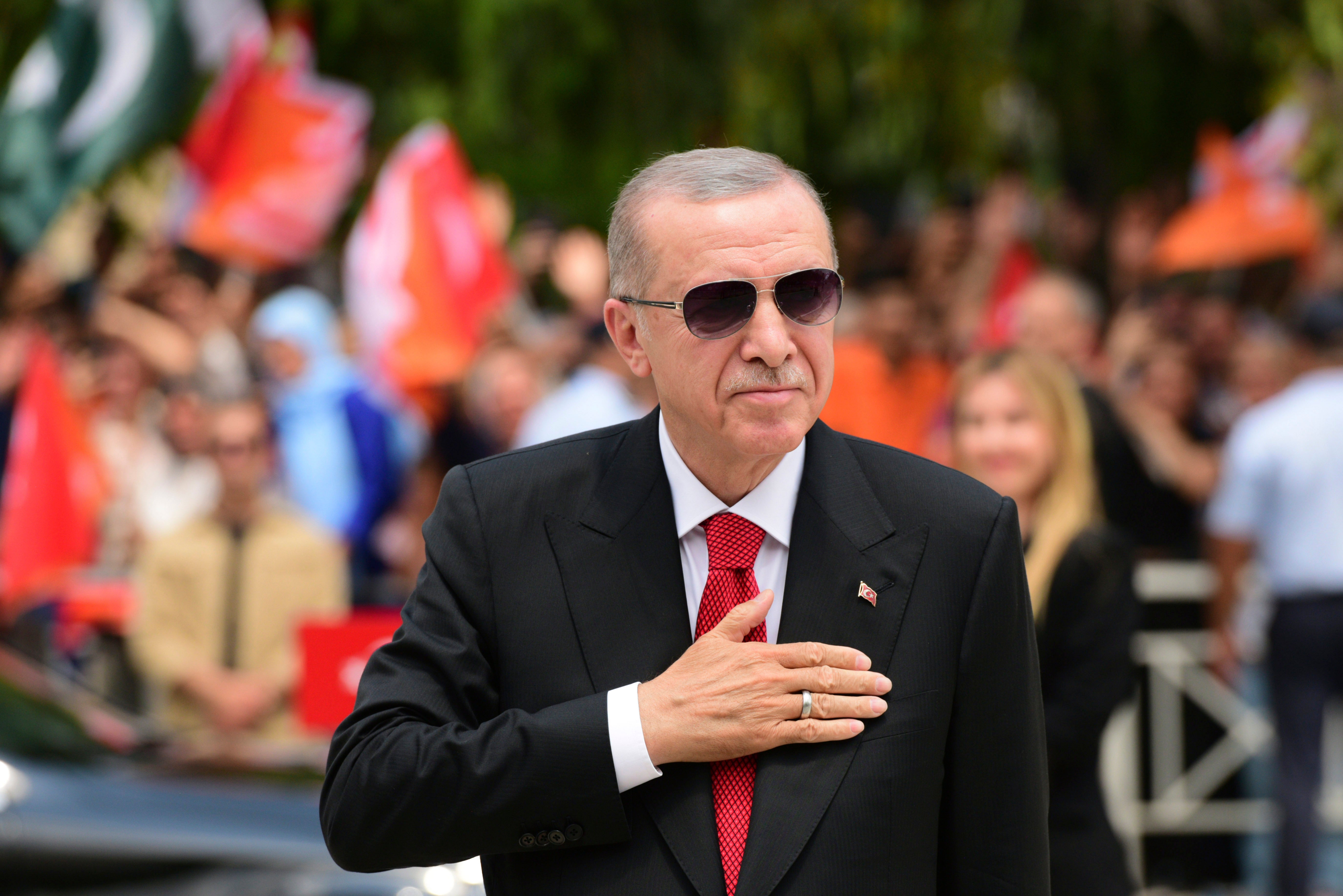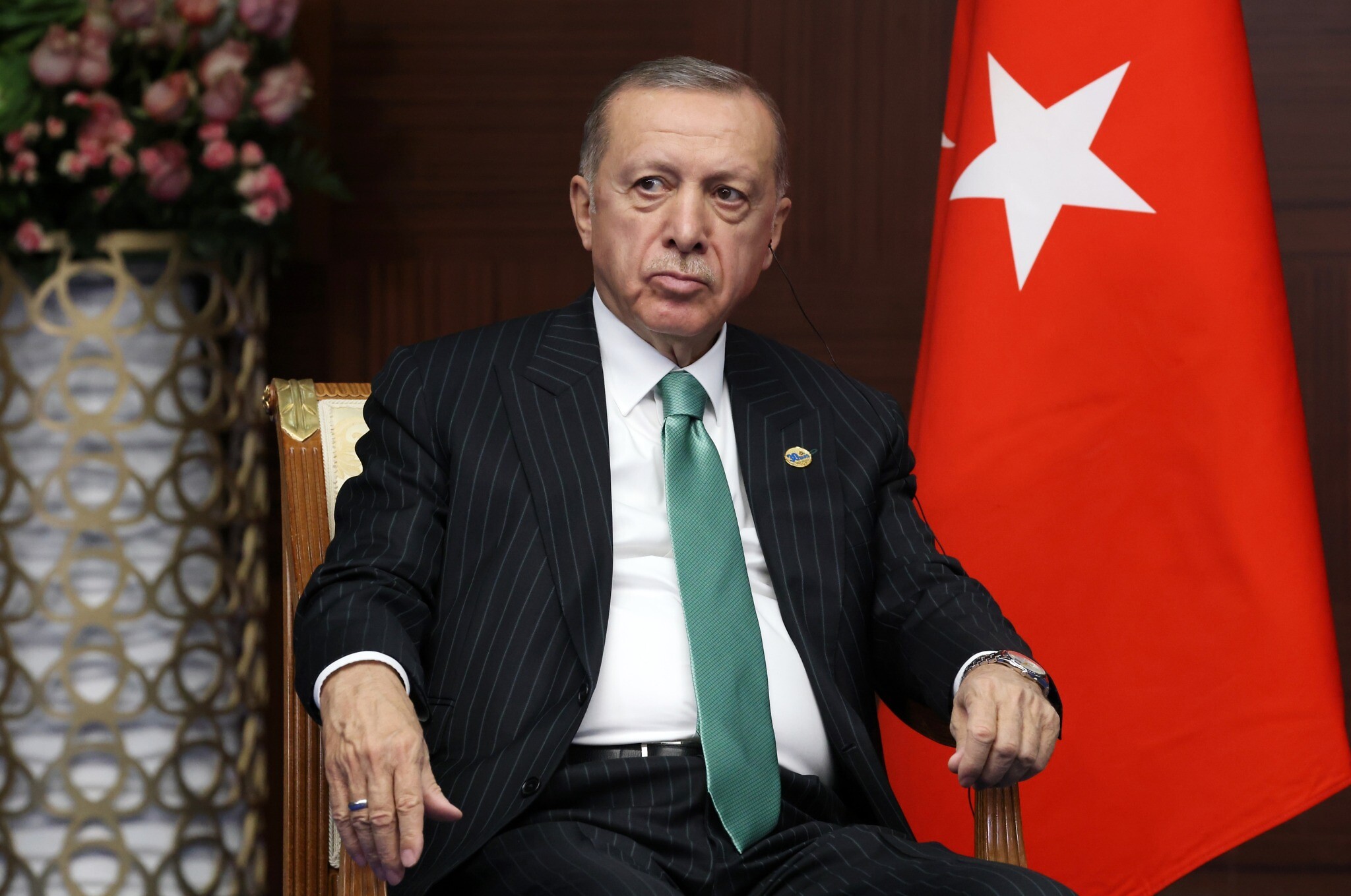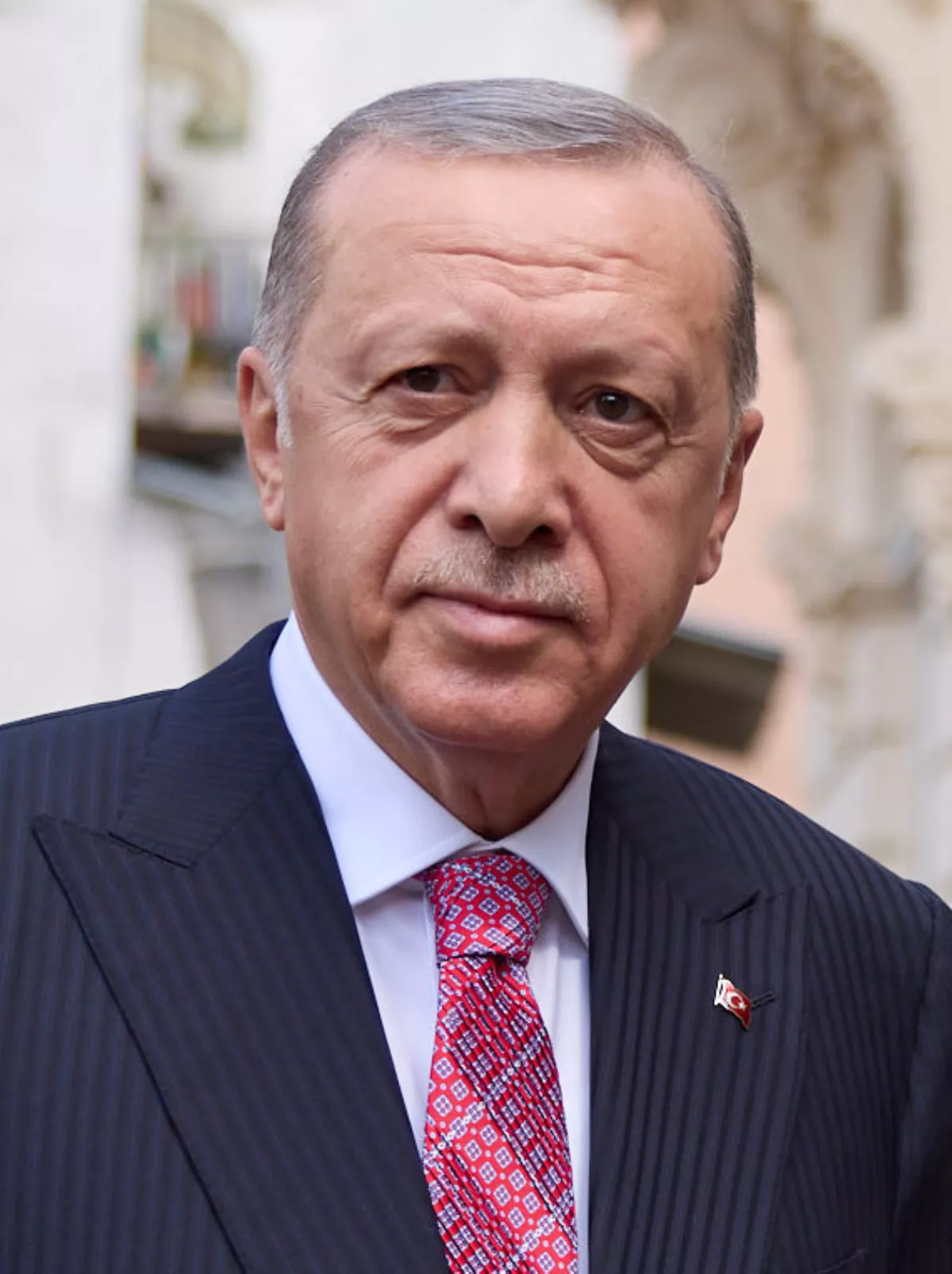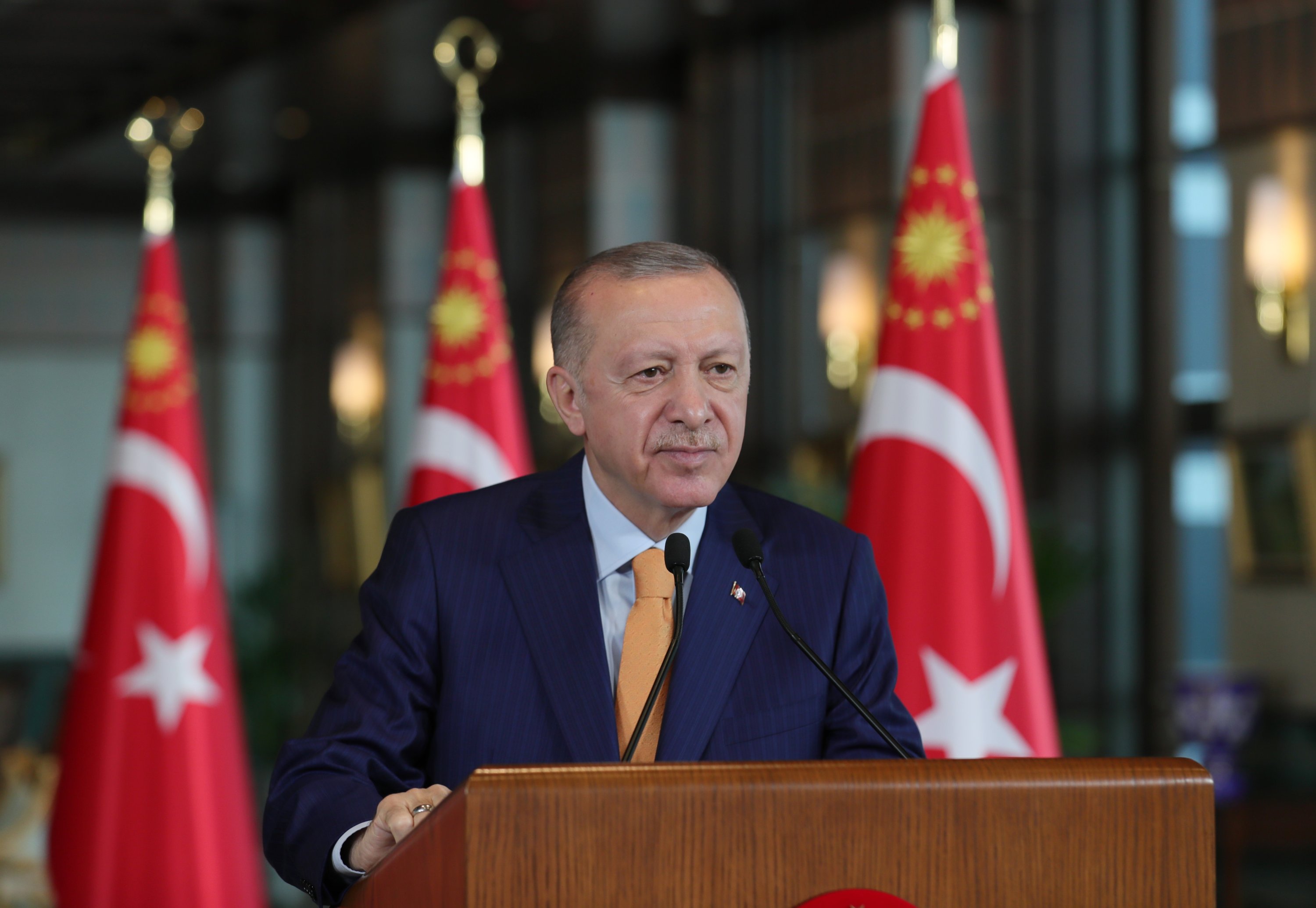Recep Tayyip Erdoğan: Turkey's Charismatic And Controversial Leader
Recep Tayyip Erdoğan has been a dominant figure in Turkish politics for over two decades. As Prime Minister from 2003 to 2014 and President since 2014, he has overseen a period of significant economic growth and political change in Turkey. However, he has also been criticized for his authoritarian tendencies and his crackdown on dissent.
Editor's Notes: "Recep Tayyip Erdoğan: Turkey's Charismatic And Controversial Leader" was published today. This is an important topic to read about because it provides insights into the complex and fascinating figure of Recep Tayyip Erdoğan.
Our team has done extensive research and analysis to put together this guide on Recep Tayyip Erdoğan: Turkey's Charismatic and Controversial Leader. We hope that this guide will help you understand the key aspects of Erdoğan's life and career, and his impact on Turkey.

Turkey’s Erdogan still refusing to endorse Nato membership for Sweden - Source www.independent.co.uk
Key differences or Key takeways:
| Born: | February 26, 1954 |
| Birthplace: | Istanbul, Turkey |
| Education: | Marmara University, Istanbul |
| Political party: | Justice and Development Party (AKP) |
| Years in office: | Prime Minister (2003-2014), President (2014-present) |
Erdoğan's early life was marked by poverty and hardship. He was born in a working-class neighborhood of Istanbul, and his family struggled financially. Despite these challenges, Erdoğan was a bright and ambitious student. He went on to study economics at Marmara University, and after graduating, he worked as a financial advisor.
Erdoğan's political career began in the 1970s, when he joined the Islamist National Salvation Party. In 1994, he was elected mayor of Istanbul, and he quickly became a popular figure in Turkish politics. In 2001, he founded the Justice and Development Party (AKP), and in 2003, he led the AKP to victory in the parliamentary elections.
As Prime Minister, Erdoğan oversaw a period of significant economic growth in Turkey. He also implemented a number of social reforms, such as increasing access to healthcare and education. However, Erdoğan was also criticized for his authoritarian tendencies. He cracked down on dissent, and he was accused of corruption.
In 2014, Erdoğan was elected President of Turkey. As President, he has continued to consolidate his power. He has declared a state of emergency following a failed coup attempt in 2016, and he has cracked down on opposition parties and journalists.
Erdoğan is a complex and controversial figure. He is a charismatic leader who has overseen a period of significant change in Turkey. However, he has also been criticized for his authoritarian tendencies and his crackdown on dissent.
FAQ
Explore common concerns and misconceptions regarding Recep Tayyip Erdoğan, Turkey's charismatic and controversial leader. Recep Tayyip Erdoğan: Turkey's Charismatic And Controversial Leader.
Question 1: What are the key controversies surrounding Erdoğan's rule?
Erdoğan's leadership has been marked by allegations of authoritarianism, suppression of dissent, and erosion of democratic institutions. Critics have accused him of undermining the independence of the judiciary, suppressing freedom of the press, and silencing political opponents.
Question 2: What have been the economic consequences of Erdoğan's policies?
Erdoğan's economic policies have had a mixed impact on the Turkish economy. While his government has overseen a period of economic growth, it has also been accompanied by high inflation and a widening wealth gap. Critics argue that Erdoğan's interventionist policies and close ties with businesses have led to corruption and cronyism.
Question 3: What is Erdoğan's stance on foreign policy?
Erdoğan has pursued an assertive foreign policy, seeking to increase Turkey's influence in the Middle East and beyond. He has been a vocal critic of Western intervention in the region and has attempted to forge closer ties with countries like Russia and Iran. Some experts believe that Erdoğan's foreign policy has isolated Turkey from its traditional allies and damaged its reputation on the international stage.
Question 4: How has Erdoğan's leadership affected Turkey's relationship with the EU?
Erdoğan's government has had a strained relationship with the European Union. The EU has criticized Erdoğan's human rights record and backsliding on democratic principles. Turkey's accession to the EU, a long-standing goal of Ankara, has been put on hold due to these concerns.
Question 5: What are the prospects for Erdoğan's future?
Erdoğan's future is uncertain. He has been in power since 2003 and has faced increasing opposition in recent years. The Turkish economy is facing challenges, and Erdoğan's popularity has declined. It is unclear whether he will be able to maintain his grip on power or if he will eventually be forced to step down.
Question 6: What is Erdoğan's legacy likely to be?
Erdoğan's legacy will be complex. He has been a polarizing figure, both within Turkey and internationally. His supporters credit him with transforming Turkey into a more prosperous and influential country. His critics argue that he has damaged democratic institutions and undermined human rights.

Erdogan hints 2023 presidential run will be his last, after 20 years in - Source www.timesofisrael.com
Tips on Reading "Recep Tayyip Erdoğan: Turkey's Charismatic And Controversial Leader"
Recep Tayyip Erdoğan is a fascinating and complex figure who has shaped the modern history of Turkey. His rise to power, his policies, and his leadership style have been the subject of much debate and analysis. This article provides an overview of Erdoğan's life and career.

146 Facts About Recep Tayyip Erdogan | FactSnippet - Source www.factsnippet.com
Tip 1: Pay Attention to Historical Context
Erdoğan's rise to power cannot be understood without considering the historical context of Turkey in the late 20th and early 21st centuries. The country was facing significant economic and political challenges, and Erdoğan's Justice and Development Party (AKP) offered a message of hope and change.
Tip 2: Consider Diverse Perspectives
Erdoğan is a polarizing figure, and there are widely differing opinions about his leadership. It is important to read a variety of sources to get a balanced perspective on his presidency.
Tip 3: Look for Patterns and Themes
Throughout Erdoğan's career, certain patterns and themes emerge. For example, he has been known for his strong commitment to economic growth, his authoritarian tendencies, and his geopolitical ambitions.
Tip 4: Examine the Impact of International Relations
Turkey's foreign policy under Erdoğan has been marked by both cooperation and conflict with its neighbors and Western allies. Understanding the role of international relations in Erdoğan's presidency is crucial.
Tip 5: Be Critical and Analytical
It is important to approach the study of Erdoğan and his presidency with a critical and analytical mindset. Consider the evidence, weigh different perspectives, and form your own conclusions.
By following these tips, readers can gain a deeper understanding of Recep Tayyip Erdoğan, his leadership, and his impact on Turkey.
Additionally, it is important to note that the article is written from a neutral and objective perspective, presenting both positive and negative aspects of Erdoğan's presidency. The tips provided are designed to guide readers in their evaluation and interpretation of the material.
Recep Tayyip Erdoğan: Turkey's Charismatic And Controversial Leader
Recep Tayyip Erdoğan's leadership in Turkey has been marked by both charisma and controversy. Here are six key aspects of his leadership:
- Populist: Erdoğan has cultivated a strong connection with Turkey's rural and conservative electorate through populist policies and rhetoric.
- Authoritarian: Erdoğan has increasingly centralized power and curtailed civil liberties, leading to concerns about authoritarianism.
- Nationalist: Erdoğan has emphasized Turkish nationalism, bolstering support among patriotic voters but also straining relations with neighboring countries.
- Religious: Erdoğan's policies have favored conservative Islamic values, appealing to religious voters but alienating secular segments of society.
- Diplomatic: Erdoğan has pursued an active and assertive foreign policy, seeking to enhance Turkey's global influence.
- Economic: Erdoğan's economic policies have led to high growth but also inflation and currency volatility, polarizing opinion in Turkey.
These key aspects of Erdoğan's leadership are interconnected and have shaped his tenure. His populist and authoritarian tendencies have allowed him to maintain control, while his nationalist and religious policies have both rallied and divided Turkish society. His diplomatic assertiveness has boosted Turkey's international profile, while his economic policies have had mixed results. Erdoğan's leadership continues to generate controversy and debate, and its long-term impact on Turkey remains to be seen.

Is Erdoğan on His Way Out? | Journal of Democracy - Source www.journalofdemocracy.org

Erdoğan signals Turkey isn’t ready to ratify Sweden NATO membership - Source www.courthousenews.com
Recep Tayyip Erdoğan: Turkey's Charismatic And Controversial Leader
Recep Tayyip Erdoğan, Turkey's president since 2014 and prime minister from 2003 to 2014, is a charismatic and controversial figure whose policies have had a profound impact on Turkey's domestic and foreign affairs. A devout Muslim, Erdoğan has overseen a period of significant social and economic change in Turkey, including a crackdown on dissent and a shift towards a more authoritarian style of government.

How to interpret Erdoğan’s political leadership | Column - Source www.dailysabah.com
Erdoğan's supporters credit him with restoring Turkey's economic and political stability after decades of turmoil. They point to his successful economic policies, which have led to a period of rapid growth and development. They also credit him with improving Turkey's international standing and making it a more influential player on the world stage.
Erdoğan's critics, on the other hand, accuse him of being authoritarian and intolerant of dissent. They point to his crackdown on the media, the judiciary, and other civil society groups. They also criticize his foreign policy, which they argue has alienated Turkey's allies and made it more isolated on the international stage.
Despite the controversy surrounding his presidency, Erdoğan remains a popular figure in Turkey. His supporters see him as a strong leader who has made Turkey a more prosperous and powerful country. His critics, however, fear that he is leading Turkey down a path towards dictatorship.
Only time will tell what Erdoğan's ultimate legacy will be. However, there is no doubt that he is one of the most consequential figures in Turkish history.
Table: Key Points about Recep Tayyip Erdoğan
| Key Point | Description | ||||||
|---|---|---|---|---|---|---|---|
| Born in Istanbul, Turkey, in 1954 | Became prime minister of Turkey in 2003 | Became president of Turkey in 2014 | A devout Muslim | Overseen a period of significant social and economic change in Turkey | Critics accuse him of being authoritarian and intolerant of dissent | Supporters see him as a strong leader who has made Turkey a more prosperous and powerful country | His ultimate legacy remains to be seen |
Conclusion
Recep Tayyip Erdoğan is a complex and controversial figure who has had a profound impact on Turkey's domestic and foreign affairs. His supporters credit him with restoring Turkey's economic and political stability, while his critics accuse him of being authoritarian and intolerant of dissent. Only time will tell what Erdoğan's ultimate legacy will be, but there is no doubt that he is one of the most consequential figures in Turkish history.
Erdoğan's presidency has been marked by both progress and setbacks. He has overseen a period of rapid economic growth, but he has also cracked down on dissent and consolidated his power. It remains to be seen whether Erdoğan will be able to maintain Turkey's stability and prosperity in the years to come, or whether he will lead the country down a path towards authoritarianism.